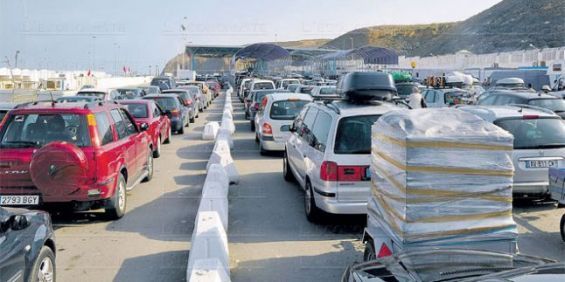To avoid the spread of the novel coronavirus, the governments of Morocco and Spain have mutually agreed to implement a travel ban between the two countries. The measure, announced Thursday by Morocco and Spain, has left several Moroccan nationals in a state of distress, with several people who were found themselves stranded in both Spain and Morocco.
Based in Malaga, Sonia is one of the Moroccans who found themselves blocked in Spain after the sudden travel ban. «Everyone is stranded here», Sonia told Yabiladi on Friday. On the phone, the Moroccan national reported that «all universities and schools have been closed in Malaga», where she lives with her sister.
Stranded in Spain
«The authorities have urged us to buy food and supplies and avoid public gatherings as much as possible», she added. «We are worried as the numbers of confirmed cases is on the rise here : Around thirty people have tested positive for the virus since Thursday in Malaga», Sonia said.
Bloqué en #Espagne d’où je devais rentrer demain ! Situation inédite dans ma vie ! More news to come
— Othman Naciri (@othmannaciri) March 12, 2020
The decision came as a bombshell on other Moroccans settled down in southern Spain, according to our interlocutor. «I know several Moroccans who wanted to leave the country yesterday but they were not allowed to», she explained, adding that «the region is full of Moroccan students who want to return to Morocco».
«We don’t really know for how long the situation will remain the same», she argued. «Schools are expected to remain closed for 15 days but we don’t know if it is the same for flights and borders with Morocco», Sonia concluded.
Meanwhile, other Moroccans based in Spain have acted fast on the decision, trying to leave the country through other European countries. «My brother is a 17-year-old student in Spain. All his friends have already left Spain for Morocco and he found himself almost alone at the university campus», Anissa* told Yabiladi on Friday.
Anissa’s brother found himself blocked in Spain after his flight, which was due to April 1, was cancelled yesterday following the travel ban. «We thought about it a lot before we got him a plane ticket» through a European country, Anissa said.
«We had to get him back to Morocco because he wouldn’t be able to survive on his own», she regretted.
Unable to return to Spain
The problem is also real for Moroccans who found themselves stranded in Morocco after the travel ban. In a video that went viral on Twitter, Khadija, a Moroccan who lives in Spain, said that she wants to return to the European country, where she left her family. Alongside a Spanish woman, she urged the authorities to let her return to Spain, where she has a job and a family.
Bloquées à Tanger-Med suite à la décision de suspension du trafic maritime en provenance et à destination d'Espagne.#CoronaVirus pic.twitter.com/MeVOGamOaJ
— Laarabi ? (@nawfal) March 12, 2020
The travel ban implemented by Spain and Morocco has also affected Italy, the epicenter of the virus in Europe. Earlier this week, Morocco suspended flights to and from Italy after it had implemented emergency coronavirus measures to the entire country, imposing travel restrictions.
Following this decision, a group of Italian tourists in Agadir told Italian daily Corriere Della Serra that they are blocked in the North African Kingdom and could not return to Italy.
«There is no passenger traffic between the two banks (Spain and Morocco) but it is not the case for trucks carrying food and supplies», an authorized source from the Tangier Med port told Yabiladi. «People cannot travel to ports because there are no ferries that will transport them», the same source added. Yesterday «there were people in ferries, in the open sea, at the time when the decision was made».
«These ferries were allowed to duck. All the ferries already engaged continued on their way to their destination to transport passengers. The last ones finished their crossing at around 11pm yesterday», it concluded.
For the record, Morocco has announced, so far, seven confirmed coronavirus cases, including one that died. Most of the patients who tested positive for the virus came from countries where the virus is widely spread, including Italy, France and Spain.





 chargement...
chargement...












